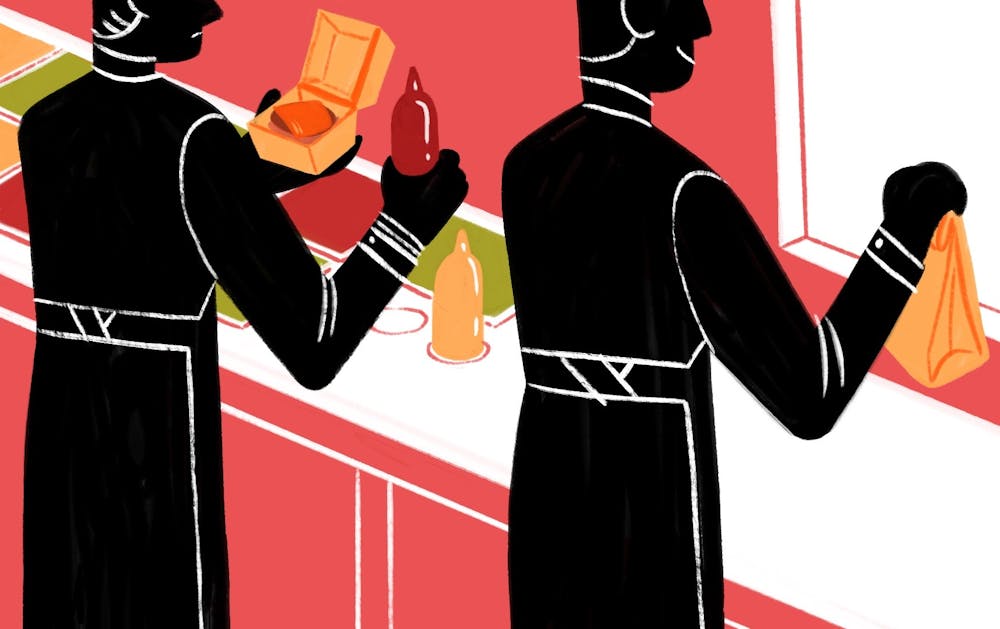When McDonald’s announced its promotional campaign with rapper Travis Scott, a new related TikTok trend instantly went viral.
Users of the app would record themselves ordering the “Travy Patty” in drive-thru by announcing “You know why I’m here!” and playing the song “Sicko Mode” from their car speakers.
This is not the first drive-thru prank trend to go viral, nor will it be the last. As an employee of a national fast food chain, I can tell you that pranksters don’t need the promise of internet stardom to play jokes on service workers. It’s usually a weekly, if not daily, occurrence that a gutsy customer decides to play a practical joke on the worker taking their order.
I can also tell you that inside the kitchen, these kinds of jokes are almost never welcome. Food service employees work at an incredibly fast pace and are usually evaluated on their speed of fulfillment.
That means there is a visible timer in the restaurant indicating how long it takes for each customer to be served. As employees, our performance reviews and raises can be affected by those times.
Every moment a customer spends playing a practical joke on our drive-thru workers is another moment we could fail to meet the constant expectations of speed and efficiency placed upon us.
I don’t think that any TikTok pranksters intend to maliciously harass any service workers. In fact, it's likely they don’t even consider the people behind the drive-thru speakers at all.
I know that, personally, when I visit a restaurant chain, I tend to view the employees as ambassadors of the brand before I remember them as other human beings. This tendency may be by design.
Fast-food workers wear identical uniforms, have strict hair and piercing codes and are even required to use the same language when speaking to customers, such as Chick-fil-A’s “my pleasure” or Raising Cane’s infamous drive-thru greetings.
Corporate managers implement these policies often with the goal of standardizing the consumer experience across all their restaurants. Conventional wisdom says people like consistency. They want to know exactly what to expect every time they walk into a Taco Bell, no matter where they are in the country.
But, in practice, the focus on duplicating the same aesthetics in every restaurant can cause customers to unconsciously dehumanize their servers. From the outside, it’s incredibly easy to view the staff of your local McDonald's like a faceless blob of servers instead of a group of individual people with feelings and needs.
Fast-food workers, though, feel the effects of how they’re perceived in a very real way. Just last week, one of my coworkers was called a s---- and a w---- by a customer in the drive-thru. The manager couldn’t do anything about it, and my coworker was forced to dutifully serve them the food they had paid for and wish them a nice evening.
This is one of the tamer, more family-friendly anecdotes I could recount about the harassment my coworkers and I have endured.
There are corporate practices that both subliminally and overtly enable the harassment of fast-food workers.
While it shouldn’t be unreasonable to suggest fast-food customers should re-examine the way they treat their servers, it should also be understood that corporations and managers create an environment that breeds harassment and dehumanization. They implement unified dress codes and promote "the customer is always right" service standards that prevent workers from standing up to threatening or entitled customers, like in my coworker's case.
I’ve experienced the effects of these practices firsthand, and even if you’ve never worked a fast-food job, chances are you have family or friends who have experienced them as well.
Fast-food workers already have enough to deal with in their high-pressure, fast-paced and demanding workplaces. It shouldn’t need to be mentioned that food service workers are also typically some of the lowest wage workers.
So, next time you stop by McDonald’s to pick up a Travis Scott meal, recognize the personhood and hard work of those serving you. Harassment of any kind occurs when we fail to perceive each other as equal, feeling humans.
Reach the reporter at lexmoulton@gmail.com and follow @lexmoul on Twitter.
Like The State Press on Facebook and follow @statepress on Twitter.




